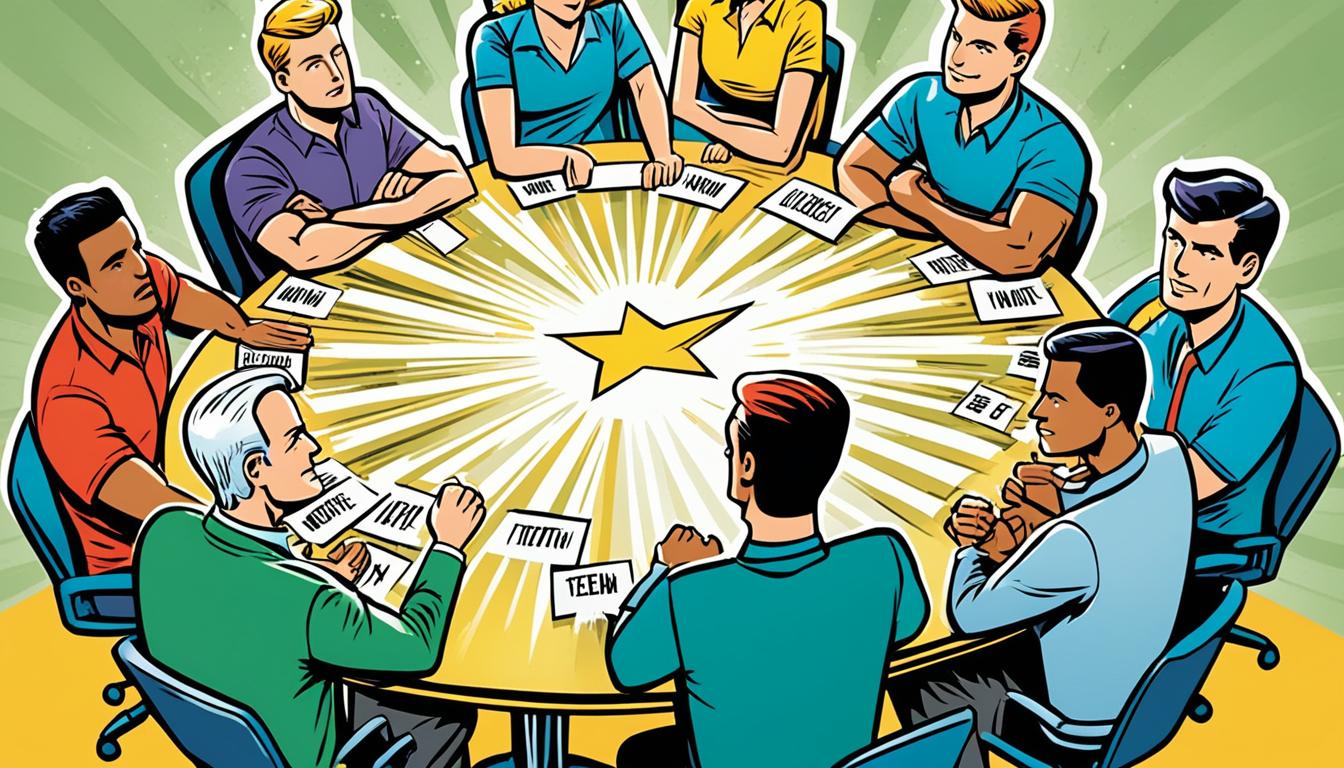To land your dream job with confidence, start by thoroughly researching the company’s mission, values, and industry position to show genuine interest. Make a strong first impression with professional attire, confident body language, and clear communication. Adapt to different interview formats by preparing your environment and responses. Focus on building trust through respectful interactions and positive engagement. Mastering non-verbal cues and understanding what interviewers seek will give you an edge — explore more tips to stand out even further.
Key Takeaways
- Master thorough company research to align your answers with the organization’s mission, values, and industry context.
- Practice clear, confident communication, including active listening, appropriate body language, and timely, professional responses.
- Prepare for different interview formats and durations to tailor your approach and maintain composure throughout.
- Build rapport and trust through respectful, transparent interactions, emphasizing positive candidate experiences.
- Project confidence with purposeful gestures, steady eye contact, and a positive tone to leave a strong, memorable impression.
Mastering Company Research for a Competitive Edge

Mastering company research gives you a clear edge in interviews by enabling you to demonstrate genuine interest and strategic alignment. When you know the company’s mission, vision, and values, your answers naturally resonate with its culture, making a strong impression. Staying updated on recent news, product launches, and strategic initiatives shows you’re genuinely engaged and current. Understanding the competitive landscape helps you frame your responses around industry challenges and opportunities, highlighting your awareness. Researching leadership and organizational structure allows you to ask tailored questions and engage in meaningful dialogue. By diving into company history, core products, financial health, and cultural insights, you position yourself as a well-prepared candidate. This deep knowledge boosts your confidence and makes you stand out as someone truly invested in the company’s success. Research methodology further emphasizes that thorough preparation is critical, as it has been proven to significantly increase interview success rates and candidate confidence. Incorporating industry trends into your research can also demonstrate your forward-thinking mindset and adaptability, setting you apart from other candidates. Additionally, understanding potential risks and pitfalls the company faces can enable you to craft thoughtful questions and responses that showcase your strategic mindset and proactive approach. Moreover, exploring water-related company initiatives can reflect your awareness of industry-specific innovations and sustainability efforts, making your candidacy even more compelling.
Making a Strong First Impression in Minutes

Making a strong first impression in minutes is essential because interviewers often form opinions within the first few moments. You have about 7 seconds to convey confidence and approachability, which can influence the entire interview. Your appearance matters; 71% of employers refuse to hire candidates who don’t dress appropriately, so dress professionally and in line with company culture. Body language also plays a critical role—maintain eye contact, smile, and use positive posture to show confidence. Your tone of voice and speech delivery should be clear, balanced, and authentic; nervous habits can undermine your professionalism. A firm handshake, polite greetings, and cultural awareness in your initial interactions set a respectful, engaging tone. These quick cues can make or break your chances early on. First impressions are heavily influenced by visual and vocal cues, and paying attention to these details ensures you make a memorable, positive impact right from the start. Incorporating professional attire that aligns with current trends, such as Nike Tech or other stylish, appropriate clothing, can further enhance your overall presentation. Additionally, understanding the importance of initial perception in the context of overall interview success can help you tailor your approach to stand out positively.
Navigating Different Interview Formats and Lengths

Adapting to different interview formats requires flexibility, especially with virtual setups that may have unique technical demands. Managing varied durations guarantees you stay engaged without fatigue, whether it’s a quick phone screen or a multi-stage process. Being prepared for each format helps you present your best self and handle time effectively. Familiarizing yourself with resources and tools and expectations in interview styles can also give you an edge in international or cross-cultural job settings.
Adapting to Virtual Formats
Exploring different virtual interview formats and lengths requires careful preparation to guarantee a smooth experience. You should familiarize yourself with platforms like Zoom, Microsoft Teams, or Google Meet, and ensure your device, internet, and software are optimized. Knowing whether you’ll face a live, one-way, or hybrid interview helps you tailor your approach. Longer interviews may need extra focus, while shorter ones demand concise, impactful answers. Be ready for potential technical issues and environmental distractions, which can affect your performance. Use the following table to guide your preparation:
| Format Type | Typical Duration | Key Focus |
|---|---|---|
| Live Video | 30-60 mins | Building rapport, detailed answers |
| One-Way Video | 10-15 mins | Clear, brief responses |
| Hybrid | Varies | Flexibility, technical readiness |
| Panel | 45-90 mins | Engaging multiple interviewers |
| Technical Tests | 15-30 mins | Demonstrating skills, problem-solving |
Additionally, understanding the importance of first impressions can help you make a strong impact within the limited time frame of virtual interviews. Preparing your environment and testing your equipment beforehand are crucial steps to avoid unexpected disruptions. Ensuring proper lighting and background can further enhance your presentation and help convey professionalism. Being aware of the different interview formats and their specific requirements allows you to adapt your responses and approach effectively.
Managing Varied Durations
Understanding the typical durations of different interview formats helps you manage your time and expectations effectively. Early-stage recruiter calls or part-time interviews usually last around 15 minutes, so prepare concise responses. First-round interviews with hiring managers often take about 30 minutes, requiring a balance of detail and brevity. Longer sessions, like technical or panel interviews, can extend from 45 minutes up to two hours, demanding sustained focus. Multi-day assessments are common for senior roles, so plan your energy and schedule accordingly. Adapt your approach based on the interview type; shorter interviews favor quick, impactful answers, while longer formats call for in-depth preparation. Recognizing these durations helps you pace yourself and stay confident throughout the process. Additionally, understanding content management systems can help you organize your interview responses and materials efficiently. Being aware of potential interview durations allows you to prepare your responses and mindset for each stage effectively.
Enhancing Candidate Experience to Secure Job Offers

To stand out in today’s competitive job market, you need to prioritize clear communication and respectful interactions throughout the hiring process. When candidates feel valued and well-informed, they’re more likely to accept offers and recommend your company. Focusing on positive experiences can make all the difference in securing top talent. Additionally, fostering a safe space for open dialogue helps build trust and demonstrates genuine interest in the candidate’s perspective, which can significantly enhance the overall candidate experience. Recognizing the importance of empathetic communication can help create a more supportive and welcoming interview environment that encourages authenticity. Understanding cultural significance of positive interactions can further strengthen your engagement strategies.
Clear Communication Strategies
Have you ever considered how clear communication can make or break your chances of landing a job offer? Most employers prioritize your verbal skills—55% see it as essential, with nearly half valuing presentation abilities. Active listening, emphasized by 36%, helps you understand and respond effectively, while digital skills like email proficiency are increasingly important to 31%. Preparation is critical; 70% of hiring managers notice lack of it, and practicing responses reduces nerves, which 75% of managers say hampers clarity. Sending timely thank-you notes, valued by 80%, reinforces your interest. Authenticity and clarity help you express experiences genuinely, strengthening mutual understanding. Clear, confident communication boosts your professionalism, improves the candidate experience, and positions you as a standout candidate.
Respectful Interview Conduct
Respectful interview conduct is essential for creating a positive candidate experience and increasing your chances of making a strong hire. Showing fairness and professionalism builds trust and encourages candidates to present their best selves. Here are four key practices:
- Schedule interviews promptly and respect the allotted time to value candidates’ schedules.
- Use open-ended, non-leading questions to gather genuine responses without bias.
- Clearly explain the purpose of sensitive questions and let candidates skip uncomfortable topics.
- Maintain confidentiality and inform candidates how their data will be used to foster transparency. Obtaining informed consent is a crucial component of ethical interview practices, ensuring candidates understand how their information will be handled and feel respected throughout the process. Incorporating attention to detail during interviews can help identify qualities that align with the role and company culture. Additionally, demonstrating an awareness of candidate perceptions can significantly improve the overall experience. Creating a safe, respectful environment encourages honest communication. By demonstrating professionalism and fairness, you enhance the candidate experience and increase your chances of securing top talent.
Positive Candidate Interactions
Creating positive candidate interactions is essential for enhancing the overall experience and increasing your chances of securing top talent. Clear, timely communication notably impacts candidate decisions—66% accept offers because of transparent interactions, while 26% reject offers due to poor communication. Keeping candidates waiting over three months or providing unclear expectations damages trust. Advance sharing of interview details and prompt feedback boost satisfaction and perception of your company. Simplify application processes by reducing length and complexity, making them mobile-friendly and quick to complete. Prioritize positive interview experiences—87% say it can change their minds, and body language, like eye contact, plays a critical role. Showing salary info early and emphasizing your company culture also build trust and loyalty, making candidates more likely to accept and refer others.
Crafting a Standout Resume and Application Strategy

To stand out in a competitive job market, crafting a compelling resume and developing a strategic application process are essential. Focus on creating a two-page resume, as 70% of hiring managers prefer this format for detailed content. Keep your layout clean and minimalistic to improve readability and ATS compatibility. Include links to your LinkedIn profile or online portfolio to provide additional information without clutter.
Consider these key steps:
- Use relevant keywords and certifications to pass ATS filters.
- Tailor each resume to the specific role, emphasizing quantifiable achievements.
- Avoid filler words and ensure flawless spelling and grammar.
- Incorporate action verbs and highlight problem-solving and leadership skills.
These strategies bolster your chances of making a strong impression and advancing to the interview stage.
Using Non-Verbal Cues and Confidence to Your Advantage

Non-verbal cues play a crucial role in shaping how interviewers perceive you, often having a stronger impact than your verbal responses. Maintaining steady eye contact shows confidence, alertness, and dependability, while a professional appearance boosts your credibility. Open gestures and upright posture project competence and engagement, making you appear more confident. Your voice tone, pitch, and fluency also influence perceptions; a calm, modulated voice signals control and self-assurance. Smiling makes you seem approachable and friendly, especially in roles requiring interpersonal skills. Avoid fidgeting or nervous mannerisms, as these suggest anxiety. Purposeful hand gestures support your verbal responses, and a relaxed demeanor can ease interview tension. Mastering these non-verbal cues helps you convey confidence, build rapport, and leave a lasting positive impression. Research indicates that nonverbal cues like appearance, movement, and voice influence interview judgments and hiring likelihood, emphasizing their importance in the interview process.
Frequently Asked Questions
How Can I Effectively Research a Company’s Future Growth Plans?
To effectively research a company’s future growth plans, start by reviewing their annual reports, investor presentations, and strategic documents for clear goals and KPIs. Analyze industry reports and competitor activities to understand market trends and growth opportunities. Use business intelligence tools and predictive analytics to gain insights into customer behavior and market forecasts. Also, check third-party analyst opinions and expert interviews to get a thorough view of the company’s expansion strategies.
What Are the Best Ways to Handle Unexpected Interview Questions?
When faced with unexpected interview questions, stay calm and take a moment to breathe. Clarify or reframe the question if needed, ensuring you understand it fully. Use structured thinking like STAR to organize your response and demonstrate problem-solving. Show adaptability by embracing the challenge with positivity, and don’t be afraid to admit when you don’t know something—offer a logical guess or your plan to find out.
How Do I Adapt My Communication Style for Virtual Interviews?
Imagine your communication style as a bridge; it must be sturdy and clear. In virtual interviews, you adapt by maintaining eye contact with the camera, speaking slowly, and using expressive facial cues. Keep your background tidy, use good audio, and stay mindful of your posture. Like tuning an instrument, adjusting your tone and gestures guarantees your message resonates effectively, helping you connect confidently despite the digital distance.
What Strategies Boost Confidence During High-Stakes Interview Moments?
During high-stakes interview moments, you can boost your confidence by practicing positive self-talk and visualization beforehand. Prepare specific examples to respond smoothly, and rehearse your answers to reduce nervousness. Maintain good posture, make steady eye contact, and smile to project confidence visually. Remember to breathe deeply to stay calm, and focus on your strengths. These active strategies help you stay composed and confident, even under pressure.
How Can I Follow up Professionally Without Appearing Pushy?
You want to follow up professionally without seeming pushy. Start by sending a thank-you note within 24-48 hours, expressing appreciation and reiterating your interest. If you haven’t heard back within the expected timeframe, wait around ten days before sending a gentle second message. Keep your follow-ups brief, polite, and personalized—reference specific topics from your interview—and avoid multiple messages to maintain professionalism and respect their time.
Conclusion
Remember, 75% of employers say a candidate’s confidence and preparation heavily influence their hiring decision. By mastering company research, making a strong first impression, and showcasing your skills with confidence, you’re already ahead. Don’t forget to tailor your resume and use positive non-verbal cues. With these secrets, you’ll walk into your dream interview feeling prepared and confident—ready to turn that opportunity into your next success story.









